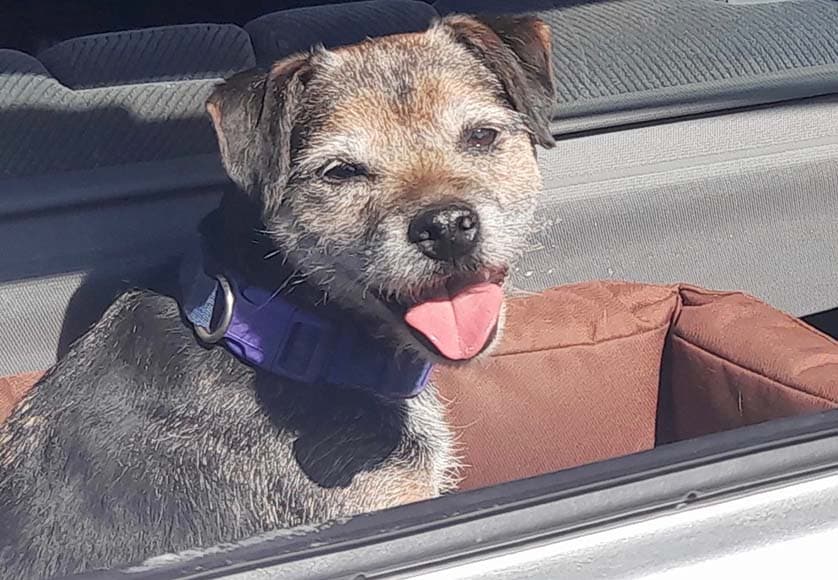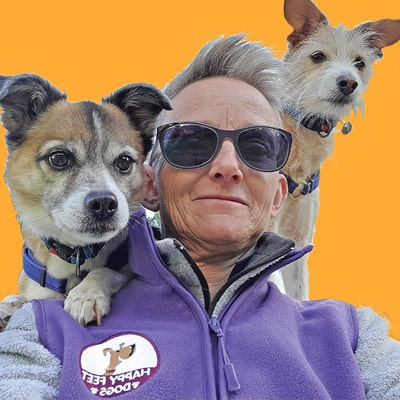We will all get old and so will our dogs. In fact, it comes around sooner than we might think; large breeds are usually considered senior around six years and small dogs around seven to 10 years.
It is not always so easy for us to accept, but it is important that we are prepared to care for them in their later years. In fact, caring for senior dogs is like caring for young puppies in some ways; they both require a higher level of supervision and more attention.
Keeping a note of any physical or behavioural changes plays a huge part in identifying that our dog might be showing signs of ageing…
What are the physical signs?
Cloudy eyes: this is quite common but may equally be a sign of cataracts or something else. They may also have difficulty locating familiar things and even bump into furniture.
Bad breath: this may indicate gum disease or tooth decay. A good clean by the vet and possibly blood work will help to rule out infection.
Signs of arthritis: generally slowing down, change of gait, difficulty jumping into the car, onto the sofa or going upstairs may all be a sign of arthritis. The vet can recommend supplements and a change in exercise routine, such as shortening walks or introducing swimming/aqua therapy can provide them with some relief.
Lumps and bumps: the appearance of fatty lymphomas on the body are usually nothing to worry about but should be vet checked.
Weight change: either gaining weight (due to decreased exercise or illness) or losing weight (which could be the result of muscle loss, reduced appetite or a digestive illness). A change in diet and exercise routine plus blood work would be advised.
Sudden incontinence: this could be due to a urinary tract infection.

What are the behaviour and mental signs?
Becoming grumpy: this may be due to pain caused by arthritis.
Sleeping more: this is quite normal, so just let them sleep.
Dementia: just as we humans can suffer from dementia, so can our dogs and the symptoms are actually very similar; changes in sleep pattern, confusion, repetitive or compulsive behaviour, house soiling, restlessness, pacing at night, anxiety, new fear of familiar people or things, change in activity level, forgetting training cues they knew.
This list may seem overwhelming, but it is really quite simple to adapt our lifestyle slightly in order to accommodate these changes and to keep them comfortable in their later years. Small adjustments to their diet and exercise, adding supplements and pain medications, introducing certain physical aids such as ramps (to help them get in and out of the car), non slip rugs/mats around the house and a more supportive bed. All of these will go a long way to help our sugar-nosed seniors through their golden years.
And, remember, there is always help at hand. At Happy Feet Dogs, we can offer you support and advice on how best to care for your old dog.
Happy Feet Dogs offers training on how to treat or prevent resource guarding. For more information, visit www.happyfeetdogs.com or email diane.happyfeetdogs@gmail.com
By Diane Lowe
Diane Lowe has been living in the Algarve 23 years. It’s not where she was born but it’s where she belongs. She is passionate about dogs, hiking and being out in nature.















